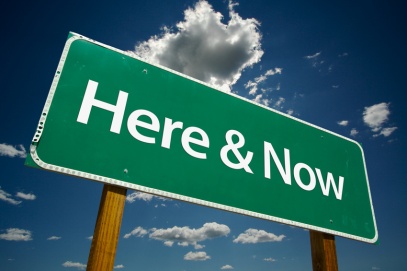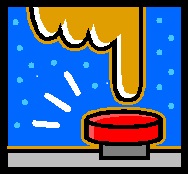I have worked as a therapist for a long time, but about fives years into my practice it occurred to me that I didn’t really know how to help couples with substance issues. More on that in a moment, first I have a true confession, public and everything:
Back when I was trying to get licensed as a Marriage & Family Therapist, after completing the three thousand hours of internship, correctly submitting the
proper paperwork and documentation, the last step involved being interviewed by a three person board – California no longer does that by the way. This board was a pretty scary thing for me to think about, in fact, kind of terrifying at the time! Their job was to filter the good from the bad, the knowledgeable from the uniformed, the competent from the incompetent, you get the idea. First you had to present a case, then they present a case and ask you all about it, then…whew, they interview you, with intense analytic acumen. I remember feeling at the time that my group of three had mastered the then popular therapist flat, non-emotional face; it was really hard to get a read on any of their reactions to what I was saying. I couldn’t tell whether I was impressing them at all, or whether they were wondering, ‘How did this guy get this far? Thank God we are here to protect the public’.
What I really remember most is one of the final questions they asked, something like this: “Is there a group or type of client you feel you don’t work well with, or that you feel uncomfortable with?” Hmm, I thought a while. “Well I don’t feel that I’m very effective with alcoholic clients or drug addicts”. There I said it, I was truthful and now they are going to suggest I go back for intensive training and try again in another year or two, or three. Maybe they will, kindly of course, suggest I get career counseling and look at other options. It turns out I passed.
What is striking to me is that I was still struggling with that discomfort with alcoholics and addicts almost five years after being licensed. The problem I became aware of at the time was that literally 80% of my clients had substance issues that were affecting them and their relationships, and I still didn’t know what to do. This started my journey on trying to know what to do. I began reading, began coursework and completed the Advanced Drug & Alcohol Training Certificate at UC Santa Cruz. I had the opportunity to lead a men’s group at a treatment center, and over time became a clinical director of the program. My training and affiliation with Dr. Stephanie Brown at and the Addiction Institute led to the wonderful opportunity to take on research through the Family Recovery Project, that Stephanie and Dr. Virginia Lewis co-founded at the Mental research Institute. My dissertation was on couple recovery from that research project. I got my doctorate and continued at MRI as a Research Associate while continuing my private practice. Virginia and I ended up co-founding the Center for Couples in Recovery, where I have continued my research for the last 10 years.
 Needless to say, I feel very different about working with individuals and couples struggling with addiction and recovery. I now understand that addiction is a disease, we now know a lot about the neurobiology of addiction. A useful understanding of addiction, in my opinion, is the Bio-Psycho-Social-Spiritual-Cultural model, accounting for the many dimensions of addiction. We also know a lot about what it takes to make relationships work.
Needless to say, I feel very different about working with individuals and couples struggling with addiction and recovery. I now understand that addiction is a disease, we now know a lot about the neurobiology of addiction. A useful understanding of addiction, in my opinion, is the Bio-Psycho-Social-Spiritual-Cultural model, accounting for the many dimensions of addiction. We also know a lot about what it takes to make relationships work.
The problem I see now is that while we talk about addiction as a “family disease”, we don’t really treat it that way. When an addicted partner gets into treatment or recovery, often the couples are separated and told to not get involved with any kind of couple work. While it is crucial for partners to establish their own recovery from this disease, I have come to learn that it is quite possible to address couple relationship issues as well, supporting individual recoveries as well as the couple recovery. By providing couples with tools to manage their relationship while they are trying to manage their own recoveries (hopefully), greater success is likely. Longitudinal research informs us that 8 years post primary treatment for alcoholism, couple and family relationship health was identified as a statistically significant variable. Or, stated less like a research geek, if your relationship is healthier, the chances are better for continued recovery.
C.A.R.E. – Couples Addiction Recovery Empowerment
Is there a place for couple recovery? Couple Addiction Recovery Empowerment (CARE), is a concept or approach in recovery that accounts for the relationship, supporting the idea of dealing with three recoveries concurrently: both individual recoveries, and the couple recovery. This approach is a very different model than the current models of recovery and treatment. How did this come together for me? Here’s the story on that.
I trained with Drs. Julie & John Gottman, and have been very involved with the Gottman Institute for the last eight years. We are currently collaborating on integrating our research models into a relational approach to recovery. This approach, the “Couple Recovery Development Approach” (CRDA), blends the Gottman research on what works in relationships and what predicts relationship meltdown and divorce, with the CRDA model emerging from my research. This collaboration with the Gottmans and the Gottman Institute has led to developing a new Gottman workshop for recovering couples, “A Road Map for the Journey: A Gottman Workshop for Couples in Addiction Recovery”. This model is also clinically applicable for individual therapists and recovery counselors to help couples develop couple recovery.
Two very newly created internet resources I have created:
- http://couplerecovery.org/ A website providing information and group forums to share ideas and stories on about couple recovery.
- https://www.facebook.com/CoupleRecovery A Facebook page “Couple Recovery Development Approach”, offering resources and another opportunity to share and create community.
These new resources are works in progress and any and all feedback is greatly appreciated.
Care to join the movement? It’s going to take a community.







































